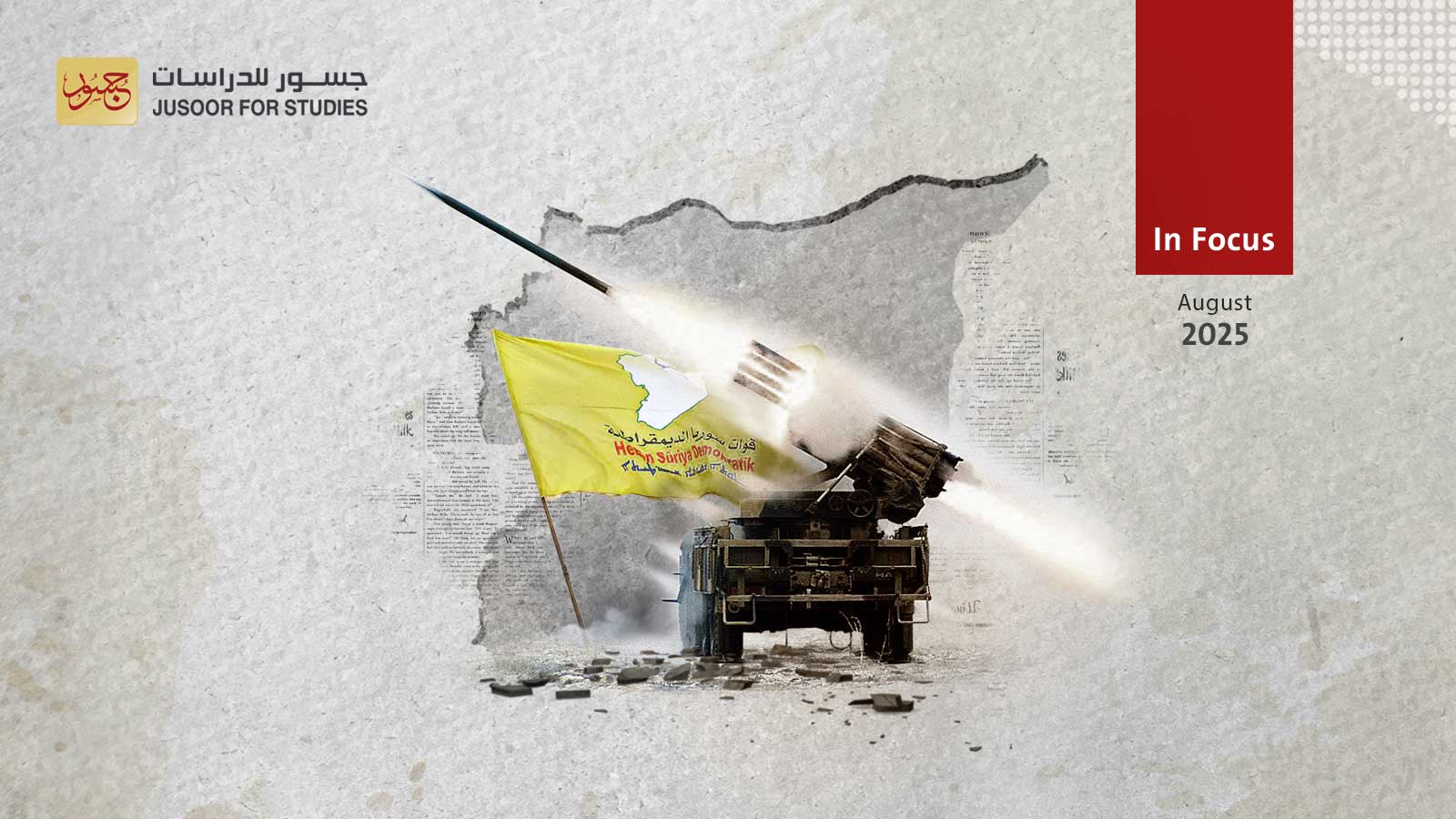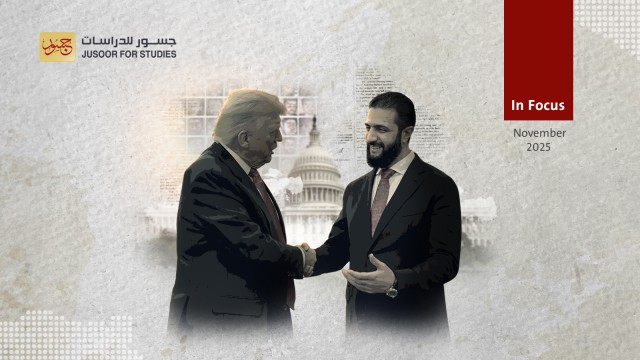An SDF Rocket Attack in Aleppo Challenges Damascus
On August 2, the Syrian Democratic Forces (SDF), affiliated with the autonomous enclave in the country’s northeast, launched a missile attack against central government forces around the city of Manbij in the east of Aleppo province. The attack, which inflicted a number of military and civilian casualties, came despite a generally positive atmosphere between the SDF and Damascus following a March 2025 agreement signed by President Ahmed al-Sharaa and SDF commander Mazloum Abdi.
The attack also came amid relative calm in Syria more generally, following violence in the Druze-majority southern province of Sweida, and coincided with progress by the government on political and economic issues. The attack immediately followed the return of Foreign Minister Asaad Al-Shaibani—with a delegation including Syria’s Minister of Defense and head of intelligence—from a visit to Moscow, where he had met Russian President Vladimir Putin and Foreign Minister Sergey Lavrov.
The SDF fears that it has lost the Russian support on which it had been relying to replace its diminishing backing from Washington, which is officially demanding that the group implement the agreement with the Syrian government. The attack also came on the same day that Azerbaijani gas began arriving in Syria via Türkiye. In addition to the SDF’s concern about the economic impact this is expected to have on government-run areas, in contrast to the ongoing economic misery in SDF-held territory, the group also appears disturbed by Türkiye’s agreement to the gas deal, stoking fears of growing Turkish influence in Syria.
The attack appears to have been driven by several motives, mainly around obstructing the country’s security, political, and economic progress. It may have resulted from internal disputes within the SDF, whose hardline factions refuse to see the March 10 agreement implemented, and which want to continue the armed struggle against both the Syrian state and that of Türkiye, even after the latter signed a historic ceasefire with the Kurdistan Workers’ Party (PKK).
However, it is likely that foreign incitement played a greater role than any internal dispute. The most likely source of such incitement is Israel, which is attempting to play the Kurdish card after it failed to leverage the Druze minority to its advantage. The situation in Sweida is gradually calming, and the international community is generally satisfied with the Syrian government’s steps to deliver humanitarian aid, evacuate besieged families, continue to provide public services, send salaries to government employees, and form an investigation committee into the events.
The interim government also succeeded in preventing foreign powers from leveraging other episodes of violence against minorities—namely the attacks on Alawites in the coastal region in March and the June bombing of the Mar Elias Church in Damascus. That said, such an analysis points to further efforts to unsettle the situation in Sweida, alongside the SDF attack.
The SDF appears to want to drag Syrian army and state security forces into a ground incursion into the areas northeast of the River Euphrates, reaching Kurdish-majority cities and villages such as Ayn al-Arab (Kobane), in order to then accuse them of violations against the Kurds. This could sow chaos reminiscent of the violence in Latakia and Tartous, drawing undisciplined armed groups or foreign fighters into the battle, or sparking panic among Arab tribes, which could quickly allow the situation to spiral out of control by state forces. The SDF is also hoping that Turkish forces will enter the fighting directly, which would provide a pretext for demanding international protection, as was the case in Sweida.
Therefore, the Syrian government must not allow the SDF to take this opportunity to play on its minority status. Damascus should refrain from launching any ground attack, and instead make do with bombing the locations from which missiles were launched. It should also step up its political efforts, especially with the U.S. Special Envoy for Syria Tom Barrack, to stop the SDF’s violations and revive negotiations on implementing the March 10 agreement.
Damascus must not allow the SDF to replace those negotiations with talks on security violations, or on problems or administrative arrangements that could drown the negotiations in details which were in any case the task of subsequent arrangements based on the agreement.








